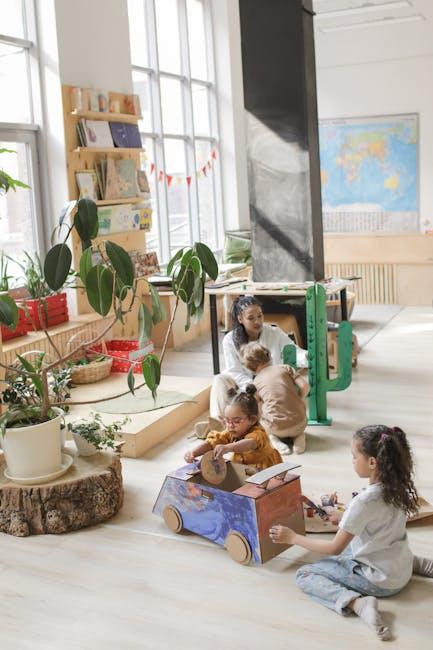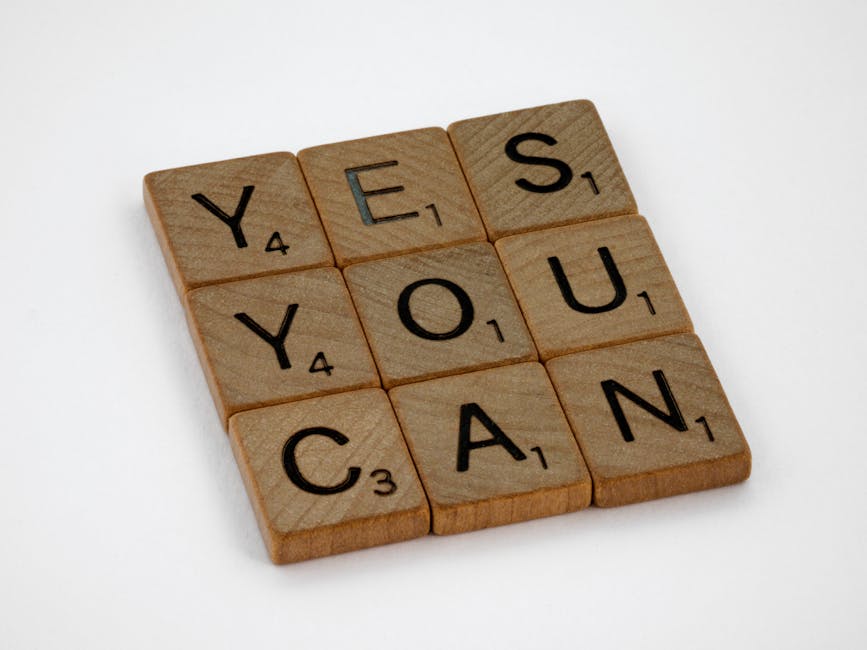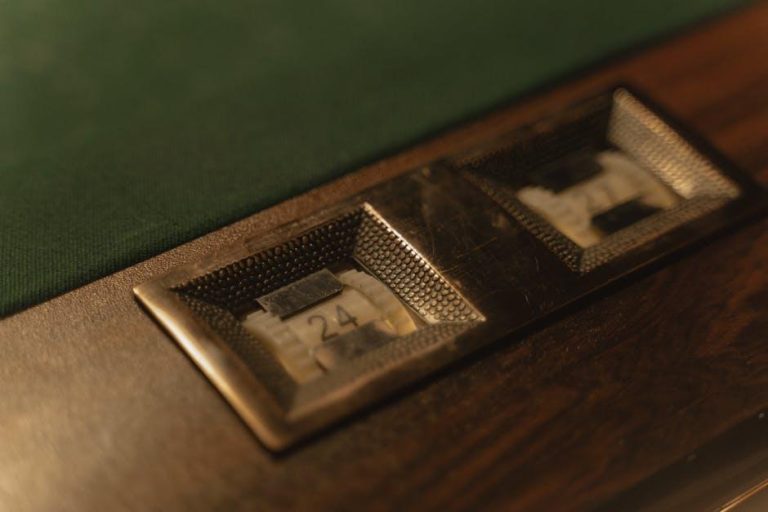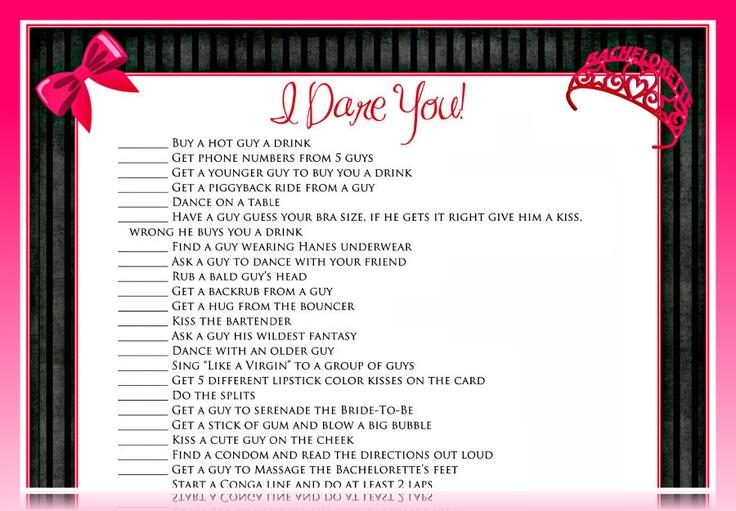Fostering Politeness: Teaching Good Manners in Kids

In a world filled with texting acronyms, TikTok trends, and Fortnite flossing, it can sometimes feel like manners have gone the way of the VHS tape – obsolete and collecting dust in the back of our memories. But fear not, dear reader, for there is hope on the horizon! Today, we embark on a mission to bring back the lost art of politeness in our youth, teaching them the fine art of saying “please” and “thank you” without rolling their eyes or checking their Snapchat notifications. So buckle up, folks, because we’re about to take a crash course in Fostering Politeness: Teaching Good Manners in Kids!
Key Components of Good Manners
Good manners are like a secret weapon in the war of social interactions. They can make or break a first impression faster than you can say “please” and “thank you”. So, what are the that can help you navigate through the minefield of human interaction without blowing yourself up?
First and foremost, good manners include being polite and courteous to those around you. This means saying “please” and “thank you” with such enthusiasm that you could put a Disney princess to shame. Bonus points if you can manage a smile and eye contact while doing so. Trust me, it works like a charm.
Another important component of good manners is listening. Yes, I know, it’s a shocking concept in today’s age of constant distraction and short attention spans. But trust me, if you can actually listen to what someone is saying without checking your phone or thinking about what you’re going to have for dinner, you’re already ahead of the game.
And finally, good manners also involve being respectful of others’ personal space and boundaries. This means not standing too close, not interrupting conversations, and definitely not taking the last slice of pizza without asking. Remember, a little respect can go a long way in earning you some serious brownie points in the manners department.

Setting a Positive Example at Home
Now that we’re all spending more time at home, it’s the perfect opportunity to set a positive example for our family members. Here are some fun and light-hearted ways to show them how it’s done:
- Practice gratitude: Start a family gratitude journal where everyone can write down something they’re thankful for each day. Bonus points for including things like “electricity” and “wifi”.
- Lead by example: Show your family the importance of self-care by indulging in a luxurious bubble bath surrounded by scented candles and a glass of wine. Just make sure the kids don’t bring their toys in for a swim!
- Encourage healthy habits: Instead of shouting “eat your veggies!” at dinnertime, try making a game out of it. See who can come up with the most creative way to incorporate broccoli into their meal.
Remember, doesn’t have to be boring. Get creative, have fun, and show your family that positivity is contagious!
Teaching the Importance of Respect
Respect, like a unicorn’s horn, is a rare and magical thing. And just like a unicorn, it’s something worth celebrating and protecting. So how do we teach the importance of respect to our little ones? Let’s dive into some tips and tricks that will have them bowing down in no time!
First things first, we need to lead by example. Kids are like sponges, soaking up every eye roll and snide comment we throw their way. So let’s show them how it’s done! Instead of yelling at the rude driver who cut us off, let’s offer a friendly wave and a smile. It’s all about spreading that good karma, baby!
Next up, let’s inject a little empathy into the mix. When little Billy refuses to share his toys, don’t just scold him – get down on his level and talk it out. Ask him how he’d feel if someone did the same to him. Empathy is like the super glue that holds respect together, after all!
And finally, let’s sprinkle some praise on those respect-filled moments like confetti at a parade. When little Susie holds the door open for someone or says “please” and “thank you” without being prompted, shower her with compliments like she just won the Respect Olympics. Positive reinforcement is the secret sauce that keeps respect alive and thriving! So go forth, my friends, and teach the importance of respect with all the passion of a unicorn lover at a Renaissance fair!

Practicing Everyday Courtesies
Ever feel like the world is lacking a bit in the courtesy department? Fear not, my friends! By , we can make this planet a better place, one polite gesture at a time.
Remember, it’s the little things that count. Hold the door open for someone, say “please” and “thank you” like they’re going out of style, and don’t forget to smile—it’s contagious!
Here are a few simple reminders to keep in mind as you navigate through your day:
- Give up your seat on the bus to someone who needs it more than you.
- Let someone go ahead of you in line at the grocery store. You might just make their day!
- Take a moment to ask someone how their day is going. Who knows, you might just make a new friend!
By incorporating these everyday courtesies into your routine, you’ll not only make others feel good, but you’ll also feel pretty darn good yourself. So go ahead, be the change you wish to see in the world, one polite gesture at a time!

Addressing Rudeness and Disrespectful Behavior
Dealing with rudeness and disrespect can be a real buzzkill, am I right? But fear not, dear readers, for we have some expert tips that will have you handling those rude dudes like a pro!
First off, it’s important to remember that you can’t control other people’s behavior, but you can control how you react to it. So take a deep breath, count to ten, and consider these strategies:
- **Kill ’em with kindness:** Sometimes the best way to handle a rude person is to shower them with sweetness. They won’t know what hit them!
- **Set boundaries:** Don’t be afraid to assert yourself and let the disrespectful party know that their behavior is not acceptable. Remember, you teach people how to treat you.
- **Walk away:** If all else fails, there’s no shame in removing yourself from a toxic situation. Life is too short to put up with bad manners.
Remember, at the end of the day, the way you respond to rudeness says more about you than it does about the rude person. So keep your cool, stay classy, and don’t let those disrespectful folks bring you down!
Reinforcing Politeness Through Praise and Encouragement
So you want to make sure your little ones are always on their best behavior? Look no further! By , you can transform those little monsters into polite angels in no time.
First things first, make sure to always acknowledge and praise any polite behavior you see. Whether they say “please” and “thank you” or hold the door open for someone, give them a high-five or a big thumbs up. Positive reinforcement goes a long way in shaping their behavior.
Encourage them to use polite language by making it fun and engaging. Create a “polite word of the day” challenge where they have to use a new polite phrase every day. Who knows, they might even start using phrases like “may I please have another cookie” instead of just grabbing them!
And remember, it’s important to lead by example. Show them what polite behavior looks like by saying “please” and “thank you” yourself. And when they see you practicing what you preach, they’ll be more likely to follow suit. Plus, who doesn’t love getting praised and encouraged for being polite themselves?
FAQs
Why is it important to teach kids good manners?
Good manners are the secret ingredient to making sure your child doesn’t grow up to be a total monster. Plus, it’s a whole lot easier to brag about your manners-teaching skills to other parents at soccer practice.
How can I get my child to say “please” and “thank you”?
Well, you could try the ancient art of bribery. Offer them a cookie every time they remember to say those magic words. It’s a win-win situation!
What do I do if my child forgets their manners in public?
Quick! Create a diversion – drop something on the ground, start singing loudly, anything to distract from your child’s faux-pas. And then give them a gentle reminder about what good manners look like.
How can I make manners fun for my child?
Turn it into a game! Add some flair and drama to your lessons in politeness. Your living room can become the stage for a grand performance of “The Tale of the Magic Manners”.
My child is resistant to learning manners, what should I do?
Ah, the classic manners rebellion. Don’t worry, it’s nothing a little tough love won’t fix. Assemble the family council and discuss the importance of manners, complete with a PowerPoint presentation.
How do I ensure my child’s manners stick with them as they grow older?
It’s all about consistency. Keep up the manners reinforcement, even when they’re old enough to roll their eyes at you. Remember, you’re in it for the long haul - until they move out, at least.
Remember, Manners Maketh Mini-People!
So, there you have it – a crash course in turning your little monsters into well-mannered mini-humans. Whether it’s saying “please” and “thank you” or learning to cover their mouths when they sneeze, fostering politeness in kids is a crucial life skill. Remember, manners maketh mini-people! Happy parenting!






